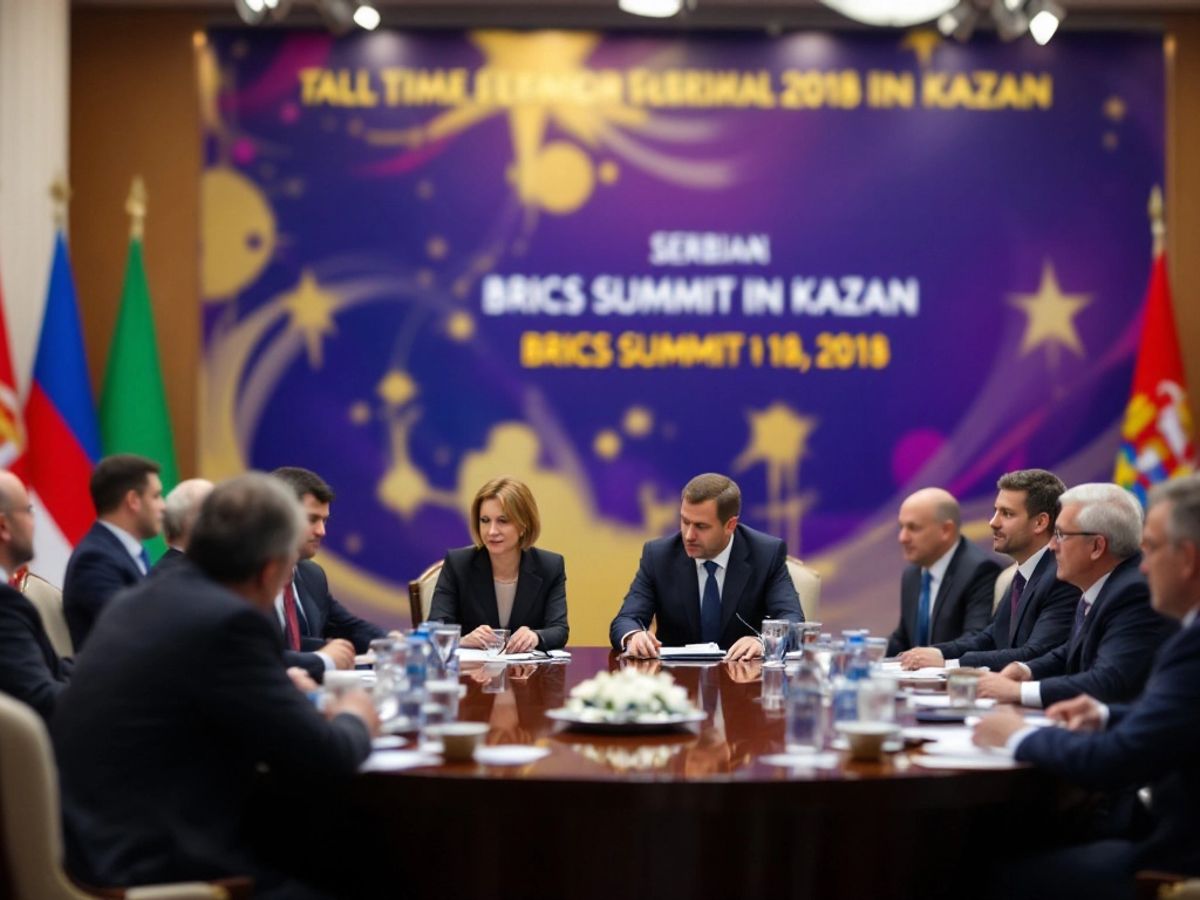Serbia is making significant strides in its international relations by participating in the BRICS summit held in Kazan, Russia. A delegation led by Deputy Prime Minister Aleksandar Vulin aims to enhance Serbia’s ties with this influential group, which includes major emerging economies.
Key Takeaways
- Delegation Composition: Serbia is represented by four ministers, including Deputy PM Aleksandar Vulin, Minister of Defense Bratislav Gasic, Minister of Economy Adrijana Mesarovic, and Minister without portfolio Nenad Popovic.
- Vucic’s Absence: President Aleksandar Vucic will not attend the summit due to prior commitments with European officials.
- Focus on BRICS: Vulin advocates for stronger ties with BRICS, viewing it as a viable alternative to the EU.
- Mixed Signals: While some Serbian officials support BRICS, Vucic maintains a cautious approach, emphasizing Serbia’s European aspirations.
Serbia’s participation in the BRICS summit is a strategic move to bolster its international standing and explore new partnerships. The summit, which runs from October 22 to 24, is significant as it marks the first gathering after the expansion of BRICS to include new members like Egypt, Iran, and the UAE.
Serbia’s Delegation
The Serbian delegation is led by Deputy PM Aleksandar Vulin, a known advocate for closer ties with Russia and BRICS. The delegation includes:
- Bratislav Gasic: Minister of Defense
- Adrijana Mesarovic: Minister of Economy
- Nenad Popovic: Minister without portfolio in charge of international economic cooperation
Vulin’s presence at the summit underscores Serbia’s intent to strengthen its relationship with BRICS, which he believes offers a credible alternative to the EU. He has expressed skepticism about Serbia’s EU membership prospects, particularly regarding the Kosovo issue.
Vucic’s Strategic Decisions
President Vucic’s decision to send a delegation instead of attending personally has raised eyebrows. He cited important meetings with European leaders as the reason for his absence. This decision reflects a balancing act between maintaining ties with the West while exploring opportunities with BRICS.
Vucic has indicated that public sentiment in Serbia is evenly split between support for the EU and BRICS, with both receiving approximately 42% approval. This suggests a growing interest in diversifying Serbia’s international partnerships.
The BRICS Appeal
BRICS, which includes Brazil, Russia, India, China, and South Africa, has been increasingly viewed as a platform for countries seeking alternatives to Western-dominated institutions. Vulin and other Serbian officials have highlighted the absence of political conditionality in BRICS membership, making it an attractive option for nations like Serbia.
Future Prospects
While Serbia’s economic ties with the EU remain strong—accounting for over 59% of foreign direct investment from 2010 to 2022—the government appears to be pursuing a dual strategy. This involves exploring closer cooperation with BRICS while continuing its EU accession efforts.
Russia’s Deputy Foreign Minister has hinted that Serbia could gain "partner status" within BRICS, which would allow for collaboration without full membership. This could provide Serbia with the flexibility to engage with both the EU and BRICS, enhancing its geopolitical maneuverability.
In conclusion, Serbia’s participation in the BRICS summit represents a pivotal moment in its foreign policy, as it seeks to navigate the complexities of international relations while balancing its aspirations for EU membership with the allure of emerging global partnerships.
Sources
- Vucic: Four government members to represent Serbia at BRICS summit, tanjug.rs.
- Serbia eyes BRICS partnership as top officials attend summit in Kazan, Intellinews.
- Deputy PM Vulin leads Serbian delegation at BRICS Summit in Kazan – Telegraf.rs, Telegraf.rs.
- Government: Deputy PM Vulin to lead Serbian delegation as President Vucic’s envoy at BRICS summit – Telegraf.rs, Telegraf.rs.
- Vučić is absent from BRICS summit, Serbia is represented by four ministers – Euronews Albania, Euronews Albania.






